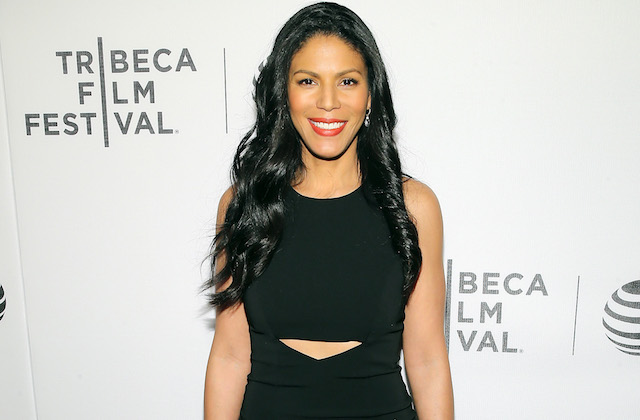Actress and singer Merle Dandridge embraces the word "Blasian" to describe her mixed Black and Asian ancestry.
"I like these new terms that are being used today," said Dandridge about the terms "Blasian" and "Black Asian" in a new interview with the Center for Asian American Media. "I like that they are in our vernacular. For me it’s interesting to see this new mixed generation because they are born into [a] time that embraces their beauty. They are born into [a] time where they can put their shoulders back and swagger a bit. I find it stunning and see how people look at them and I wish I could say back to my teenage self, ‘Hey, you are right! You are beautiful and you are spectacular.’"
Dandridge, whose father is Black and mother is of Korean and Japanese descent, spoke with interviewer and scholar Mitzi Uehara Carter about her new starring role on the Oprah Winfrey Network show "Greenleaf." She said that her and her family’s experience of existing in the space between groups and traditions helped her grow:
My mother is half Japanese and Korean. And I have older siblings who are mostly Korean, 1/4 Japanese, because of my mom’s first marriage to a Korean man. I was born in Okinawa, but most of my time in Asia was in Seoul. My mother belongs to two cultures that didn’t really accept her 100 percent. So she had this understanding of rejection based on her own experiences. She would look at me and say, "You are of different ethnicities and you might not always be accepted so go into the world knowing that and know that you are more than that. You are beautiful." And in many ways she instilled a sense of who I was and gave me ways to encounter fears of not being fully accepted. And in Nebraska as one of the only ones [mixed Asians], I think it was a good exercise in becoming a good person because I think I had to be above the confusion, the potential rejections.
"Greenleaf," which premieres tonight (June 21), features Dandridge as the estranged daughter of a Memphis-based megachurch leader (Keith David) whose return threatens the family’s stability and image. She describes the series as a "water cooler show" that explores issues like abuse, police brutality and the intersection between personal faith and organized religion.
Read the full Q&A here.
